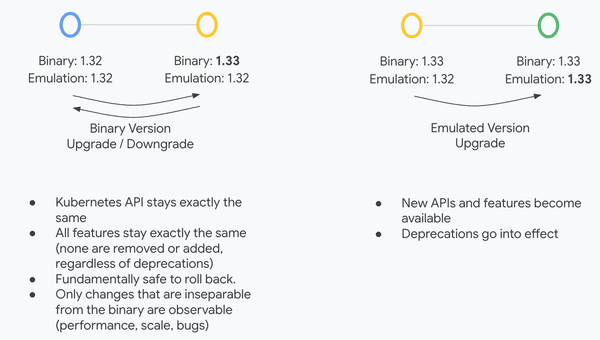Containerization and Deployment of Node.js Applications

# Running Node.js in the Cloud with Containers
Building a **Node.js application** locally is simple — a quick `npm start` usually does the job.
However, deploying to the **cloud** introduces challenges: servers, environments, dependencies, pipelines.
**Containerization** helps you solve these problems by enabling consistent, portable deployments.
This guide demonstrates how to containerize a simple Node.js API and deploy it to the cloud using Docker and a registry service.
By the end, you'll know how to set up Docker for your app, push it to a registry, and scale it in the cloud.
---
## Table of Contents
- [Prerequisites](#prerequisites)
- [What is Containerization?](#what-is-containerization)
- [Setting Up a Node.js App](#setting-up-a-nodejs-app)
- [Writing the Dockerfile](#writing-the-dockerfile)
- [Building & Testing the Container](#building--testing-the-container)
- [Preparing for Deployment](#preparing-for-deployment)
- [Deploying to the Cloud](#deploying-to-the-cloud)
- [Scaling Your App](#scaling-your-app)
- [Updating Your App](#updating-your-app)
- [Benefits of Containers](#benefits-of-containers)
- [Conclusion](#conclusion)
---
## Prerequisites
Before we start, ensure you have:
1. **Node.js & npm**
- Install Node.js v18 or higher from [nodejs.org](https://nodejs.org/en).
Verify with:node -v
npm -v
2. **Docker Installed & Running**
- Install [Docker Desktop](https://www.docker.com/products/docker-desktop) or Docker Engine for your OS.
Check installation:docker --version
3. **Container Registry Account**
- Recommended: [Docker Hub](https://hub.docker.com/).
Login credentials will be used to push your container image:docker login
4. **Cloud Provider Account**
- AWS, Google Cloud, Azure, Sevalla — all support container deployment.
5. **Basic Command-line Knowledge**
- Navigating directories, running scripts, installing packages.
---
## What is Containerization?
**Containerization** packages your app with all dependencies, configs, and environment settings into a single **container image**.
### Advantages:
- **Portability** — Runs anywhere Docker works.
- **Consistency** — Same config in dev, staging, production.
- **Isolation** — Containers don't affect host OS or other apps.
- **Efficiency** — Smaller than VMs, uses fewer resources.
> Think of containers as lightweight VMs containing *only* what your app needs.
---
## Setting Up a Node.js App
1. **Create Project**:mkdir my-node-api
cd my-node-api
npm init -y
2. **Install Express**:npm install express
3. **Create `server.js`**:const express = require('express');
const app = express();
const PORT = process.env.PORT || 3000;
app.get('/', (req, res) => {
res.json({ message: 'Hello from Container!' });
});
app.listen(PORT, () => {
console.log(`Server running on port ${PORT}`);
});
4. **Define `package.json`**:{
"name": "container-node-app",
"version": "1.0.0",
"main": "server.js",
"scripts": {
"start": "node server.js"
},
"dependencies": {
"express": "^5.1.0"
}
}
5. **Test Locally**:npm start
Visit [http://localhost:3000](http://localhost:3000).
---
## Writing the Dockerfile
Create a `Dockerfile` in your project root:
FROM node:24
WORKDIR /usr/src/app
COPY package*.json ./
RUN npm install
COPY . .
EXPOSE 3000
CMD ["npm", "start"]
**Explanation**:
- **Base Image**: Node.js v24 official.
- **Working Directory**: `/usr/src/app`.
- **Install Dependencies**: `package*.json` then `npm install`.
- **Copy Code**: All files.
- **Expose Port**: 3000.
- **Default Command**: `npm start`.
---
## Building & Testing the Container
1. **Build Image**:docker build -t container-node-app .
2. **Run Container**:docker run -p 3000:3000 container-node-app
3. **Test in Browser**: Open [http://localhost:3000](http://localhost:3000).
Expected output:{"message":"Hello from Container!"}
---
## Preparing for Deployment
To deploy, push your image to a registry like Docker Hub.
1. **Tag Image**:docker tag container-node-app your-dockerhub-username/container-node-app:latest
2. **Push to Registry**:docker login
docker push your-dockerhub-username/container-node-app:latest
---
## Deploying to the Cloud
We’ll use **[Sevalla](https://sevalla.com/)** as an example PaaS with a free tier.
1. **Login**: [Sevalla Dashboard](https://app.sevalla.com/login)
2. **Create Application**: Name it `node-api`.
3. **Enter Image Path**: e.g. `your-dockerhub-username/container-node-app:latest`.
4. **Choose Location & Plan**: Hobby plan with $50 credit.
5. **Deploy**: Click **"Create and Deploy"**.
Sevalla will:
- Pull image from your registry.
- Configure networking.
- Launch your container.
**Visit App**: Click the live URL to see your cloud-hosted API.
---
## Scaling Your App
With Sevalla or similar services:
- Increase containers easily.
- Load balancing handled automatically.
- No manual server setup needed.
Scaling ensures consistent performance during high traffic.
---
## Updating Your App
Workflow:
1. Modify your code.
2. Rebuild Docker image:docker build -t your-dockerhub-username/container-node-app:latest .
3. Push new image:docker push your-dockerhub-username/container-node-app:latest
4. Redeploy from your cloud dashboard.
---
## Benefits of Containers
- **Consistent Deployments** — Eliminates “works on my machine” issues.
- **Simplified Setup** — No manual package installs per environment.
- **Seamless Scaling** — Spin up containers as needed.
- **Fast Rollback** — Revert to previous image versions quickly.
- **Efficient Resource Use** — Small footprint compared to VMs.
---
## Conclusion
Containerization streamlines the deployment process, making your **Node.js app** portable across environments with minimal configuration.
We created a Node.js API → built a Dockerfile → tested locally → pushed to Docker Hub → deployed to the cloud with scaling & updates.
---
**Bonus for Creators**:
If you also distribute API-driven or AI-generated content across multiple platforms, explore **[AiToEarn](https://aitoearn.ai/)** — an open-source global AI content monetization platform. It integrates:
- AI content generation.
- Multi-platform publishing (Douyin, Kwai, WeChat, Bilibili, Rednote, Facebook, Instagram, LinkedIn, Threads, YouTube, Pinterest, X/Twitter).
- Analytics and AI model ranking ([rank.aitoearn.ai](https://rank.aitoearn.ai)).
Docs: [AiToEarn Documentation](https://docs.aitoearn.ai)
Repo: [GitHub - AiToEarn](https://github.com/yikart/AiToEarn)
---
Want to connect?
- [LinkedIn](https://www.linkedin.com/in/manishmshiva/?originalSubdomain=in)
- [Website](https://manishshivanandhan.com/)



